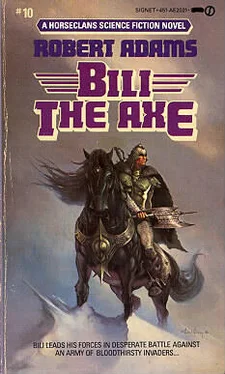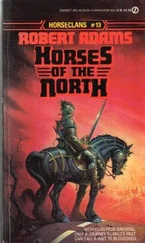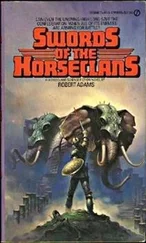Robert Adams - Bili the Axe
Здесь есть возможность читать онлайн «Robert Adams - Bili the Axe» весь текст электронной книги совершенно бесплатно (целиком полную версию без сокращений). В некоторых случаях можно слушать аудио, скачать через торрент в формате fb2 и присутствует краткое содержание. Жанр: Фантастика и фэнтези, на английском языке. Описание произведения, (предисловие) а так же отзывы посетителей доступны на портале библиотеки ЛибКат.
- Название:Bili the Axe
- Автор:
- Жанр:
- Год:неизвестен
- ISBN:нет данных
- Рейтинг книги:3 / 5. Голосов: 1
-
Избранное:Добавить в избранное
- Отзывы:
-
Ваша оценка:
- 60
- 1
- 2
- 3
- 4
- 5
Bili the Axe: краткое содержание, описание и аннотация
Предлагаем к чтению аннотацию, описание, краткое содержание или предисловие (зависит от того, что написал сам автор книги «Bili the Axe»). Если вы не нашли необходимую информацию о книге — напишите в комментариях, мы постараемся отыскать её.
But even as Bili and his warriors rally to the Kuhmbuhluhmers’ aid, the forces of the Witchmen are on the move again. Are Bili and Prince Bryuhn galloping straight into a steel-bladed trap from which death is the only release?
Bili the Axe — читать онлайн бесплатно полную книгу (весь текст) целиком
Ниже представлен текст книги, разбитый по страницам. Система сохранения места последней прочитанной страницы, позволяет с удобством читать онлайн бесплатно книгу «Bili the Axe», без необходимости каждый раз заново искать на чём Вы остановились. Поставьте закладку, и сможете в любой момент перейти на страницу, на которой закончили чтение.
Интервал:
Закладка:
Raikuh nodded, asking no leave to speak. “He’s right, you know. In the Middle Kingdoms wars, 1 and my mates have seen ruined villages and hamlets with jerry-rigged roofs just like those he describes, have done some of it our own selves at various times. They ain’t palaces, mind you, but they sure beat sleeping cold and wet. And that many Muhkohee working together for their common good could likely do a heap of work, fast.
“Yes, son Geros, I think that there village is a good bet for us to check out as soon as this weather lets up enough for patrols to ride again.”
When once they had gotten fires going on the hearths of the ruined cottages and the few larger houses, the snow that the heat had melted on the makeshift roofs of interlaced conifer branches and long sapling-rafters had frozen to a film of ice and, when once more snow had accumulated on the surfaces, the rude coverings became almost windproof, though inclined to drip steadily in the warmer interiors.
Nonetheless, Abner and Gouger and their Ganiks were damned glad to be out of the deadly storm that surrounded the rude shelters wherein they crowded with their ponies. During the few, short spells of windlessness when there was a modicum of light, the hobbled and guarded ponies were allowed to forage under the snow blanket in the woods and burned-over fields, while as much of the accumulated dung—animal and human—as could be easily reached was tossed out the doors and other groups of Ganiks cut down and fetched in firewood from the nearest growth of woodland.
Food for the mob of Ganiks was, of course, no problem, not when there were so many other Ganiks about to be murdered and butchered and cooked and eaten. Abner hated to see this loss of fighting strength, but he knew that without food they would all be too weak to fight even did they survive. Besides, his stomach growled as loud as any man’s when empty. So, as had ever been the Ganik way, the weaker and sickly went to feed the stronger and healthier.
There was no thought of killing and eating the ponies, of course. Not only did the little beasts constitute the only means of transportation, but Gouger and his crew and many another of the other lesser Ganiks were strict adherents of the old-time religion, and one of that creed’s most powerful gods—Ndaindjerd—forbade the consumption of the flesh of any furred or feathered animal.
Abner, Leeroy and a minority of others were not so strict in observance of traditional Ganik dietary laws—or of any other aspects of the singular religion of the Ganiks, for that matter—but there was no denying that human flesh was tenderer, sweeter and more succulent than the stringy, tough and sinewy pony flesh would likely have been.
Aware that there existed a terrible need to keep the raiders busy at something in this crowded and enforced confinement, Abner, Gouger, Leeroy and the other bullies set the lesser Ganiks to scrounging, even digging up floors in a search for any bits and pieces of metal to be honed and made into dart points; any hard metal would do—steel, iron, brass, bronze, pewter, even hardened copper—the Ganiks were not and had never been picky in that regard. Because another of their ancient gods—Plooshuhn—forbade them the smelting or casting of metals, they always had had to take any worked metal objects from their neighbors, cold-hammering and reshaping their acquisitions to their needs, where necessary, by any method that did not entail fire-heating of the metals, which would surely have called down upon them the awful wrath of the gods.
Pieces too large for dart tips were fashioned expertly into knife or dagger blades, for no Ganik outlaw ever felt himself to have enough knives, the bullies often carrying a dozen or more, large and small, scattered about their persons.
Not that the thrifty Ahrmehnee had actually left that much valuable metal when they hurriedly abandoned the site, but the search’ alone was an effective means of keeping the minds—far too many of which were, at best, ill balanced—of the lesser Ganiks occupied with something basically constructive.
The lesser Ganiks did not need to be actually driven to the hunt for and work upon metal. But they certainly did need to be so driven to and constantly supervised at other most necessary chores, such as the procurement of and the fetching back of food for the penned ponies.
For this was hard, cold work. It required digging beneath the icy snow with makeshift wooden spades to find grasses or herbaceous plants or even small bushes—mountain ponies were far less fastidious in their choices of food than were true horses—then hacking off armloads and bearing them back to the places wherein the snorting, stamping animals waited in ravenous impatience. And, like as not, the vicious winds or a loss of footing would see the hard-garnered loads torn from the grasps of the freezing Ganiks long before they reached their destinations.
But Abner and Gouger and the other bullies kept them at it as long as there was light enough every day, dealing a swift and brutal and very public corporal punishment to any shirker or laggard, trying hard to ensure that the lesser Ganiks would all be too exhausted through the long, dark, windy nights to do more than sip a few drafts of hot broth and then sleep.
But it did not always work out that way, of course. These outlaw Ganiks were hard, hardy, vital men, else they would never have survived long the savage, primitive life they had chosen to lead. In the cramped quarters, there were fights, many of them, night and day, for any reason or none. At last, alarmed at the number of fatal encounters, the bullies stripped the lesser Ganiks of all their weapons, even their assortments of knives. They collected all of this vast agglomeration of hardware in the largest, most complete house—wherein dwelt Abner, Gouger and Leeroy, among others—issuing only what was needed for immediate foraging tasks, then taking it back before the Ganiks were allowed to return to their quarters for the night. There were still fights, of course, but fewer of them now ended in deaths or serious injuries. Nonetheless, some of the bullies and lesser Ganiks would live to rue and regret this universal disarmament.
At the first hint of a partial slackening of the ferocity of the ten-day-long blizzard, a strong patrol rode out of the palisaded village of Ahrszin Behdrozyuhn—four Freefighters under Captain Pawl Raikuh, Tohla and three other Moon Maidens, and a baker’s dozen of Ahrmehnee led by Mahrzbehd Behdrozyuhn, the headman of the burned-out village they now thought the Muhkohee raiders to be occupying.
They set out in the gray light of false dawn, moving very slowly in the deep snows, exhalations of both humans and mounts smoking whitely out through the thick swaths of woolen cloth wrapping their faces against the sharp-toothed cold.
Observing just how slowly they advanced and with what difficulty, Geros did not expect them back soon. Nor was he wrong in his estimate. It was full dark before the near-frozen patrol, weaving and stumbling with utter exhaustion, plodded through the gate.
When once Pawl Raikuh had unwound enough of the frozen lengths of woolens to disclose his deep-sunken eyes and stubbly cheeks, he croaked, “They’re there, Sir Geros. The Muhkohee and their ponies, all of the stinking bastards, I’d reckon. Been there since the start of the blizzard, from the looks of the place, with makeshift roofing on all the standing walls and every chimney smoking. They must be packed in like herring in a barrel, but they’re all there.
“Now, by your leave, is there anything hot to drink abouts?”
But the blizzard had only been resting, marshaling its frigid resources for yet another fresh assault on the folk and beasts and lands it held in its pitiless grip. The winds howled their song of death through the most of that night and much of the following day, turning that day into a twilight of icy discomfort for those unfortunates who had to be out of doors for whatever reason.
Читать дальшеИнтервал:
Закладка:
Похожие книги на «Bili the Axe»
Представляем Вашему вниманию похожие книги на «Bili the Axe» списком для выбора. Мы отобрали схожую по названию и смыслу литературу в надежде предоставить читателям больше вариантов отыскать новые, интересные, ещё непрочитанные произведения.
Обсуждение, отзывы о книге «Bili the Axe» и просто собственные мнения читателей. Оставьте ваши комментарии, напишите, что Вы думаете о произведении, его смысле или главных героях. Укажите что конкретно понравилось, а что нет, и почему Вы так считаете.












